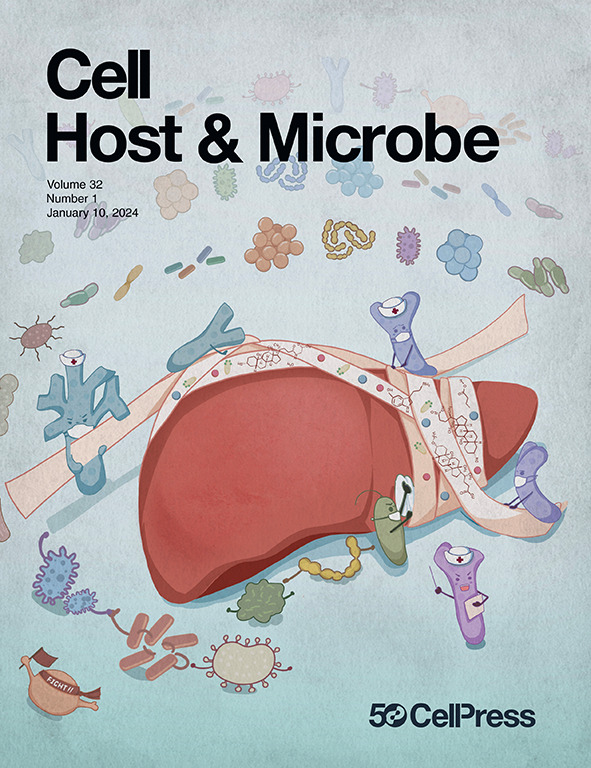宿主如何准确地控制细菌以保持肠道健康
IF 18.7
1区 医学
Q1 MICROBIOLOGY
引用次数: 0
摘要
在浩瀚的肠道微生物“海洋”中,宿主如何区分和响应特定的共生体仍然是一个谜。在最近一期的《自然》杂志上,Yang等人发现宿主APOL蛋白选择性地与拟杆菌(Bacteroidales)结合,触发外膜囊泡释放,阐明了维持肠道免疫稳态的宿主-微生物相互作用。本文章由计算机程序翻译,如有差异,请以英文原文为准。
How hosts accurately command bacteria for gut health
Amid the vast “ocean” of gut microbes, how hosts distinguish and respond to specific symbionts remains elusive. In a recent issue of Nature, Yang et al. show that host APOL proteins selectively engage Bacteroidales to trigger outer membrane vesicle release, illuminating a host-microbe mutualism that sustains gut immune homeostasis.
求助全文
通过发布文献求助,成功后即可免费获取论文全文。
去求助
来源期刊

Cell host & microbe
生物-微生物学
CiteScore
45.10
自引率
1.70%
发文量
201
审稿时长
4-8 weeks
期刊介绍:
Cell Host & Microbe is a scientific journal that was launched in March 2007. The journal aims to provide a platform for scientists to exchange ideas and concepts related to the study of microbes and their interaction with host organisms at a molecular, cellular, and immune level. It publishes novel findings on a wide range of microorganisms including bacteria, fungi, parasites, and viruses. The journal focuses on the interface between the microbe and its host, whether the host is a vertebrate, invertebrate, or plant, and whether the microbe is pathogenic, non-pathogenic, or commensal. The integrated study of microbes and their interactions with each other, their host, and the cellular environment they inhabit is a unifying theme of the journal. The published work in Cell Host & Microbe is expected to be of exceptional significance within its field and also of interest to researchers in other areas. In addition to primary research articles, the journal features expert analysis, commentary, and reviews on current topics of interest in the field.
 求助内容:
求助内容: 应助结果提醒方式:
应助结果提醒方式:


